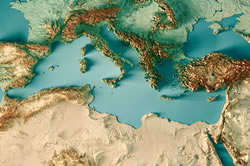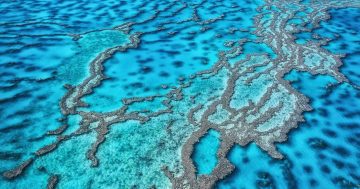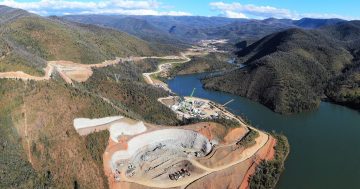Colin Chapman* says the Mediterranean Sea is sinking into disaster faster than most care to realise. Without sustained effort to bring global temperatures down to a reasonable level, the world will begin to experience its impact.
 For many of us watching King Charles III being crowned in Westminster Abbey, the immediate challenge was to look for signals as to how his governance will differ from that of his mother, Queen Elizabeth II.
For many of us watching King Charles III being crowned in Westminster Abbey, the immediate challenge was to look for signals as to how his governance will differ from that of his mother, Queen Elizabeth II.
For half a century he has vigorously espoused the need for environmental and wildlife protection, bio-diversity, and climate change action.
He has helped tens of thousands of disadvantaged young people through the Prince’s Trust. It is plain he will advocate for all of these causes.
There seems little doubt that the King is closer to public opinion than many politicians.
This became very clear to me when I was invited to participate in a symposium at Clare Hall, University of Cambridge, examining the disaster that is now facing the Mediterranean Sea.
The sea, which represents such a huge part of mankind’s history, has suffered many deprivations and disasters in recent years.
It is no longer an exaggeration to say that the Mediterranean, arguably the world’s most famous and most visited tourist destination, is dying.
Encased by 21 countries along its littoral, Mediterranean peoples have been fighting pollution, over-population, and urban blight for decades.
However, only recently has it become apparent that the climate emergency has become a very real and immediate threat, not just to the blue waters of the Mediterranean, but also to the lives of the 500 million people who live around it
Without change, several of Europe’s and Africa’s most important food bowls and energy sources look set to be wiped out.
Director of the Science and Human Dimension Project at Jesus College Cambridge, John Cornwell, has gathered a multi-disciplinary group of experts from across Europe to explore the extent and urgency of the problem.
These include oceanographers and marine geographers, climate experts and public policy gurus, historians and geopolitical analysts, diplomats and journalists.
Scientists argue that the Mediterranean today is a microcosm of the planet’s environmental future – the “canary in the climate mine”.
As former UK Ambassador to Libya, Iran, Qatar, and Yemen, Nick Hopton insisted: “It is hard to say anything will be a bigger threat [to world stability] than climate.”
He added that climate wars are already happening at the local level and are “likely to occur in the Mediterranean region, and probably sooner rather than later”.
The 2020 Report on Climate and Environmental Change in the Mediterranean Basin declared the region the “main hotspot in the world”.
The future of the Mediterranean is a global issue.
It is being discussed in the Shanghai Cooperation Organisation and the World Economic Forum, and is the location of 41 World Heritage Sites on the Adriatic coast, in Croatia and Lebanon.
Many Australians trace their roots to the Mediterranean, migrating in significant numbers during the 20th century from Italy, Greece, Lebanon, and Turkey.
The same is true of the United States and Canada.
The Mediterranean is a virtually enclosed sea at the juncture of three continents. It has a very small tidal range, so increases in sea level are evident at an earlier stage than elsewhere.
It is dominated by rocky coasts which don’t offer a sediment offset for rising water levels.
The natural migration of salt flats and beaches is often stopped by lack of space caused by cliffs or urban development and infrastructure.
Furthermore, the Mediterranean landscape has been degraded by centuries of exploitation and is very vulnerable.
The region is warming up to 20 per cent faster than the global average.
Emeritus Professor of Geography at the University of Plymouth, Neil Roberts told the Cambridge Symposium that it the sea is warmer than at any point in the last 2,000 years, including in the Roman warm period.
By 2040 temperatures are expected to increase by 2.2°C, compared with pre-industrial levels. Already the surface of the sea has warmed 0.5°C and could warm by 3°C by 2100.
These temperature changes, with the concurrent increase in salinity of the sea, will have a massive impact on biodiversity, which cannot adapt rapidly enough to survive.
Water poverty will be endemic. Some 250 million of the peoples of the Mediterranean basin are projected to be “water poor” within 20 years.
Models suggest a four per cent decrease in rainfall for every on degree centigrade of warming.
Soil moisture will decline slowly and over a longer time, but will be even more persistent, bringing huge agricultural losses.
Yields of crops such as wheat and chickpeas would be halved under drought conditions. In many areas, agriculture will only be feasible with irrigation, usually from groundwater and fossil aquifers – the latter not a renewable resource.
The catalogue of environmental issues is daunting. The problems include mass tourism in the region, now running at 300 million a year, with cruise liners seen as one of the many problems.
Others include carbon emissions, plastics and petrochemical pollution, over-fishing, and deforestation.
The knock-on consequences are already evident in unseasonal intensive heatwaves, proliferating wildfires, water contamination, marine pollution, and flash floods.
In his concluding remarks at the Symposium, author and historian, Christopher de Bellaigue told delegates that what we lack is “urgency, [in particular] the perfect blend of hope and urgency”.
That’s a sentiment King Charles III has held for almost 50 years.
*Colin Chapman is a writer, broadcaster and public speaker who specialises in geopolitics, international economics, and global media issues. He is Editor at Large at Australian Outlook.
This article was first published on the Australian Outlook page of the Australian Institute of International Affairs.











